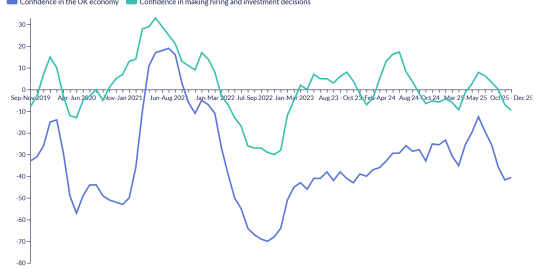Todayís official migration workers simply confirm what we already knew – that many employers are still choosing to rely on migrant workers to fill skills shortages, according to Gerwyn Davies, the CIPDís Public Policy Adviser.
The CIPDís own Labour Market Outlook, published earlier this month, found that 8% of UK employers intended to recruit from abroad in the current quarter.
Gerwyn Davies, CIPD Public Policy Adviser, said:
ìWith almost one in ten employers planning to recruit migrant workers during the current quarter, the relationship between employers and migrant workers looks set to continue in spite of the recession. Employers are still keen to recruit and retain migrant workers because they often provide skills or attitudes to work in short supply amongst the home-grown workforce. UK nationals looking for employment in the current climate need to be aware that they are still competing against skilled and willing workers from abroad – so being clear about the skills and positive approach you can bring to an employer is more crucial than ever.î
The official statistics reveal that the number of migrants awarded a national insurance number in the past year has risen to almost seven hundred thousand – an increase compared with last quarterís figures.
The figures follow the publication of the latest official Labour Force Survey (LFS) figures, published earlier this month, which show that the number of non-UK nationals in employment increased from 2.29 million to 2.35 million between the first quarter of 2008 and 2009. During the same period, the number of UK nationals in employment in the UK fell from 27.12 million to 26.74 million.
This monthís CIPD/KPMG Labour Market Outlook report showed that:
8% of employers intend to recruit migrant workers in the third quarter of 2009.
14% of UK employers say that they employ migrant workers because they are more hard-working and reliable, 13% say that they tend to be more qualified or have more experience than UK nationals.
Only 5% of employers say that their organisation is recruiting UK workers rather than migrant workers as a result of the recession.
Recession fails to dampen migrant workersí enthusiasm to work in the UK

Todayís official migration workers simply confirm what we already knew – that many employers are still choosing to rely on migrant workers to fill skills shortages




